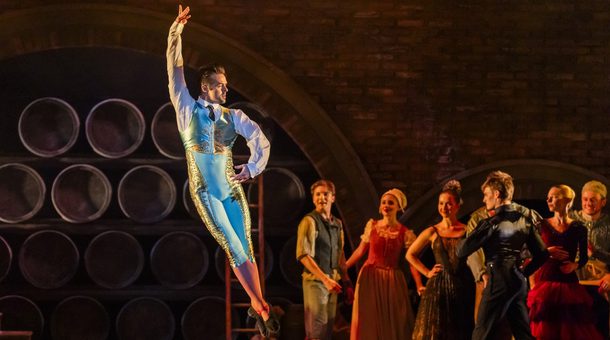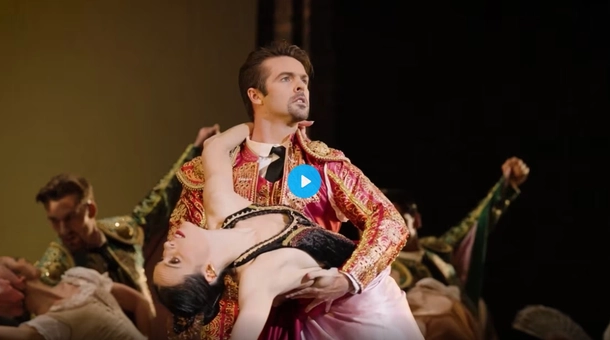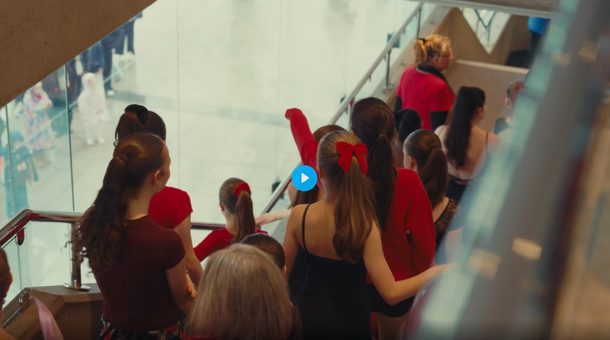News Story
24 February marks the first anniversary of Russia's invasion of Ukraine, a conflict that seems to have no end in sight. In June 2022, members of the Royal Ballet Sinfonia gave a pre-show concert to help raise funds for the Disasters Emergency Committee's Ukraine Humanitarian Appeal. One of the works that featured on that programme was an arrangement of a work by Ukrainian composer Mykola Lysenko for cello and string orchestra.
The concert was masterminded by Sinfonia Leader Robert Gibbs, with help from Senior Design Executive Lee Armstrong; Isa Gibbs, Robbie's daughter, arranged the Lysenko Elegie Op.39 specially for Principal Cello António Novais and members of the orchestra's string section.
To mark the anniversary of this tragedy, António and the full string section of the Sinfonia have now recorded the work and it is available here to download for free. All we ask is that if you enjoy the recording, you make a donation direct to the Disasters Emergency Committee.
Although not really a recognisable name in the West today, Mykola Vitaliyovych Lysenko (1842-1912) is a well-known, respected and culturally important figure in his native Ukraine. Two of his six operas, Natalka Poltavka and Taras Bulba, are still a part of the repertory in his home country, and deservedly too. He wrote very little orchestral music and was known in his day as a proponent of Ukrainian folk song and as the country's greatest exponent of art song, writing some 133 of them. His other works include many piano pieces and chamber works, including a string quartet and a piano sonata.
Lysenko was a good friend of Tchaikovsky's from the mid 1870s onwards. Tchaikovsky had Ukrainian grandparents himself and spent much time there as a child. He incorporated Ukrainian melodies into his second symphony and was a great admirer of Lysenko's music. The two staged concerts showcasing Ukrainian music in St Petersburg and, in 1891, Lysenko took a draft of his Ukrainian-language opera Taras Bulba to Tchaikovsky. Apparently the famous Russian embraced Lysenko after hearing the work and persuaded its composer to submit it to the Imperial Theatre's in St Petersburg. Sadly, despite Tchaikovsky's support, the opera wasn't staged in Lysenko's lifetime. The Russian Empire had banned the public use of the Ukrainian language in 1876, so the Imperial Theatres stipulated that in order for the opera to be performed, it would need to be sung in Russian. This Lysenko resisted until the day he died. Much of Tchaikovsky's first ballet, Swan Lake, was written in Ukraine and among the many cultural victims of Russia's invasion of the country is the villa in Trostyanets, north-east Ukraine, where Tchaikovsky stayed as a young man and composed his first orchestral work, The Storm, in 1864.
We would like to extend our heartfelt thanks to everyone involved with the recording, all of whom gave up their time for free.
Mykola Lysenko
Elegy Op.39 'La Tristesse'
Arranged by Isa Gibbs
Solo cello António Novais
Conductor Paul Murphy
First Violins
Robert Gibbs Leader
Tom Grundy
Vanessa David
Mandy Pring
Deborah Schlenther
Phil Aird
Caroline Ferriman
Jenny Thurston
Second Violins
Naori Takahashi
Mary Martin
Fiona Robertson
Robert Simmons
Mandy Britton
Robin Martin
Violas
Errika Horsley
Jill Valentine
Lisa Bucknall
Wei Wei Tan
Cellos
Toby Turton
Jane Rainey
Alessandro Sanguineti
Double Bass
Georgina McGrath


